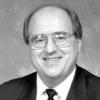The Catholic Health Association of the United States (CHA) was one of the first of 18 major national partners in the “Cover the Uninsured Week” activities, an initiative led by the Robert Wood Johnson Foundation. The intent of the week is to raise public awareness and call for government attention to reforming the U.S. health care system.
In some of our previous columns, the Robert Wood Johnson Foundation has been referenced regarding the support of such endeavors as the Institute of Medicine’s periodic reports on the patient quality and safety levels of our country’s hospitals and serving as the catalyst for the formation of the Leapfrog Group. Because of its proven track record, the Robert Wood Johnson Foundation lends tremendous credibility to all of those endeavors in which it’s involved.
Because of the high visibility received this spring by proposed House Bill 4999: Hospital Fair Billing and Collection Practices Act and House Bill 5000: Tax-Exempt Hospital Responsibility Act, many downstate hospitals addressed the major premise of “Cover the Uninsured Week” between January and May, although not formally participating in the designated week of May 1 to 7. Hospitals in central Illinois and throughout our state are committed to tackling this very difficult and complex situation of the uninsured.
On CHA’s web site (www.chausa.org), there are eight facts on the uninsured that help illustrate the complexity of this situation:
• As most elderly are covered by Medicare, nearly all uninsured are under age 65.
• Relative to their numbers in the overall population, members of racial and ethnic minority groups make up a disproportionate share of the uninsured population.
• Nearly 20 percent of uninsured Americans—8.3 million individuals—are children.
• The likelihood of being insured increases as level of educational attainment rises.
• Only 9 percent of people in families with income over $50,000 per year are uninsured.
• Employment-based health insurance continues to be the predominant source of coverage for the non-elderly population.
• In recent years, individuals with health insurance coverage have experienced increases in out-of-pocket expenses for health care.
• Health care spending in the U.S. has grown rapidly since the 1960s, at an average rate of 10 percent a year.
House Bill 4999 has been signed by Gov. Blagojevich. House Bill 5000 didn’t advance to the legislative floor, but it’ll be negotiated actively by the Attorney General’s Office and the Illinois Hospital Association on behalf of those of us providing health care in Illinois over the remainder of this year. So at the end of the 2007 legislative session, we can expect there will be some version of HB 5000. To meet the basic needs of the underserved members of the community—in particular the uninsured, who are the very citizens the original bill purports to assist—there will have to be compromise on both sides.
Perhaps for the “2007 Cover the Uninsured Week,” many more downstate Illinois hospitals will participate actively in light of a successful drafting of a new HB 5000. We’ll keep you posted. IBI

